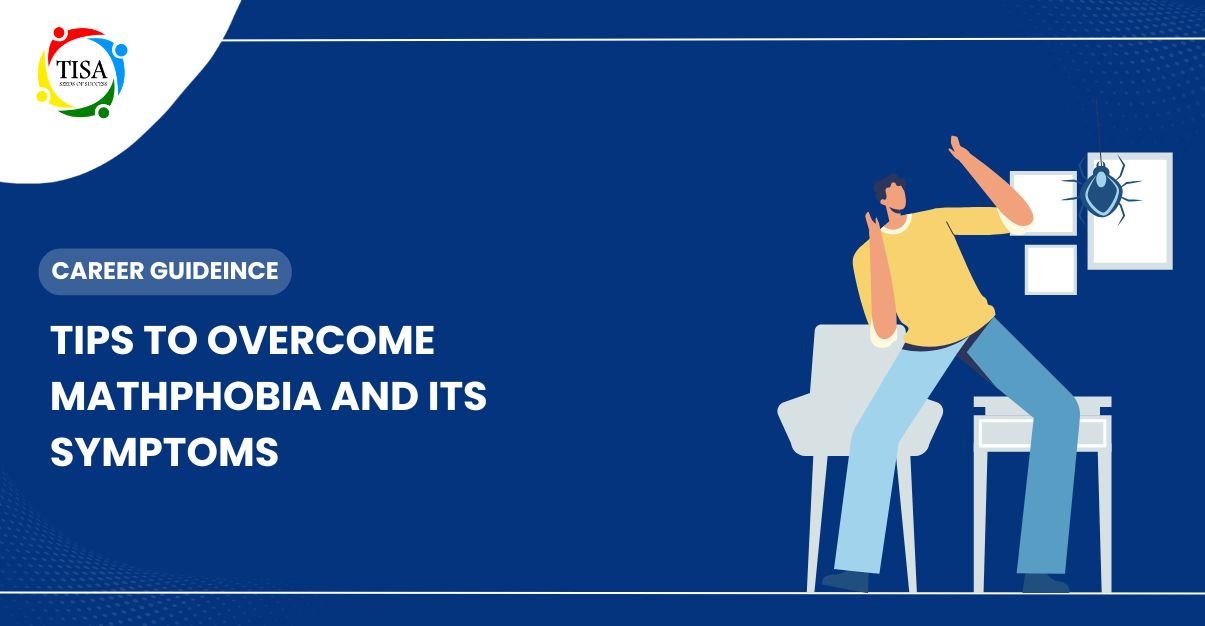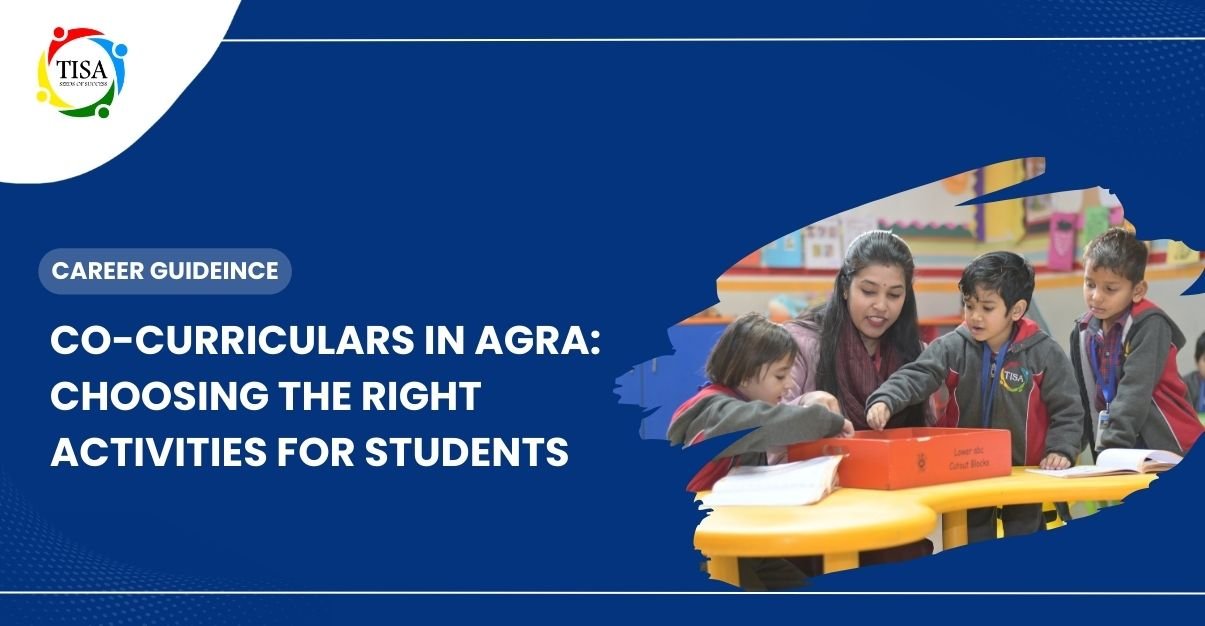Mathematics is often referred to as the “language of the universe,” yet it’s a subject that many students fear deeply. The preconceived notion of maths being tough makes the students fear it even before they begin to learn it. The fear of maths is known as Mathphobia. But this is the kind of phobia you can overcome with the help of some well-formulated strategies, support and the right mindset.
If you or someone you know has this phobia, this blog will help you understand math phobia, its symptoms and causes, and tips to overcome it. So, let’s dive in without wasting any more of your time.
Understanding Mathphobia
Math phobia is a deep-seated fear or anxiety that one feels when they think or talk about math. It doesn’t necessarily need to be associated with situations like failing a math test. Some people may just have a fear of numbers.

In such cases, people can feel anxiety just by looking at the figures of numbers. It is primarily associated with the preconceived notion of maths being challenging to understand. It’s more common than many people realize, affecting students and adults alike.
Suggested Article: 13 Tips and Tricks to Become Better at Maths
Symptoms of Mathphobia
To address mathphobia effectively, it’s essential to recognize its signs. Here are some common math phobia symptoms:
- Feeling anxious or panicked before a math class or exam.
- Avoid situations that involve math, such as budgeting or calculating.
- Sweaty palms, rapid heartbeat, or difficulty breathing when confronted with math problems.
- A sense of dread or hopelessness about improving in math.
- Difficulty concentrating on math tasks due to overwhelming fear.
If you or someone you know exhibits these symptoms, addressing them early before they affect other aspects of life is crucial.
What Causes Mathphobia?
Understanding the math phobia causes can help in overcoming this fear. Some of the most common causes include:
- Negative Early Experiences: A single negative experience, such as failing a math test or being criticized by a teacher, can create a lasting fear of math.
- Teaching Methods: Traditional teaching approaches focusing on rote memorization rather than understanding can alienate students and make them feel incompetent when understanding mathematical concepts.
- Parental Pressure: High expectations from parents or comparisons with siblings or peers can create performance anxiety. Sometimes, if a parent is good at maths, they put unfair pressure on their kids to not just pass with good scores but excel in the subject. All this can instil a sense of fear of maths in children.
- Cultural Stereotypes: Societal beliefs that math is inherently tricky or that certain groups (like girls) are less capable of excelling in math can support such fears in students. As a result, it can develop a feeling of aversion towards math in people.
- Lack of Confidence: Not feeling confident about a subject that people consider difficult is common. Students who doubt their math abilities are more likely to develop anxiety when faced with challenges.
Suggested Article: Why is TISA the Best School in Agra?
Tips To Overcome Math-Phobia

Addressing mathphobia requires a combination of psychological, educational, and practical strategies. Here are some proven methods or tips that are fruitful while seeking math-phobia treatment:
Change Your Mindset
The first step in overcoming mathphobia is believing that you can improve. Replace negative thoughts like “I’m terrible at math” with positive affirmations such as “I am learning and growing in math.” Changing your mindset about how you approach maths or look at it can make a significant impact in dealing with your math phobia.
Seek Help Early
The sooner you deal with your fears, the better. It is because, with time, if you let your worries be, they start to consume you, and there comes a point when you can’t overcome them. So, before you reach that state, you must seek help to make it right in time.
You can start by contacting teachers, tutors, or peers for guidance. Personalized attention can help clarify concepts and boost confidence.
Practice Regularly

You cannot master anything without regular practice. This is true for every skill set that you try to learn. So, ensure you dedicate a specific day to practising math problems.
Start with more straightforward concepts and gradually move to more complex ones. With regular practice, you won’t even realize when the fear of maths no longer exists.
Use Visual Aids and Technology
In today’s time, with all the technology at your fingertips, you can make learning any subject fun. If you fear learning maths, you can make it fun with the help of visual aids. You can use tools like graphs, charts, and apps to make abstract concepts easier to understand.
Adopt Relaxation Techniques
To overcome any phobia, you must know techniques to help you relax when anxious. So, if anxiety strikes during a math task, use relaxation techniques like deep breathing or mindfulness exercises. Relaxation techniques help calm the mind and improve focus.
Break Problems into Smaller Steps
Once you overcome the fear of dealing with minor problems, you can shift your focus to complex issues. However, complex problems can seem overwhelming in the beginning. The best way to deal with them is by breaking them into smaller steps. Doing this will create an illusion as if you are solving a small problem, and gradually, you can overcome the fear of solving complex mathematical problems, too.
Celebrate Small Wins
Rewarding yourself with every victory is important to encourage your mind to solve more mathematical problems. Acknowledge and celebrate even minor improvements. This reinforces a sense of accomplishment and motivates continued effort.
The Role of Schools in Combating Mathphobia
Overcoming Mathematics phobia is not only the responsibility of the student and their parents, but also the responsibility of the schools. Here are some ways educational institutions can help:
- Teachers can incorporate interactive learning, making learning math fun and entertaining. Hands-on activities and collaborative projects make math more engaging and less intimidating.
- Yomustto provides individualized support to weak students more prone to developing maths phobia. Offering remedial classes or one-on-one tutoring can help struggling students.
- The reward system works positively when motivating students to learn anything. Teachers must recognize and reward their effort rather than just focusing on the results. It helps foster a growth mindset.
- The preconceived notion that maths is complicated is a common stereotype that school administration needs to challenge. Schools should change how they approach math and emphasize that anyone can excel with the right approach.
Final Thoughts
Math phobia is a common but manageable condition with symptoms; understand and overcome it by following the tips in this blog. All you need to do is identify the math phobia symptoms, understand the causes, and implement effective strategies to deal with it.
Students can regain confidence and excel in math with this math phobia treatment. Remember, fear of math doesn’t define your abilities; it’s just a challenge that can be overcome with perseverance and support.
Lastly, embrace math as an opportunity to grow and learn. Do not lose faith in yourself because you cannot solve a math problem. Keep believing in yourself and watch yourself overcome any challenge that life throws at you








